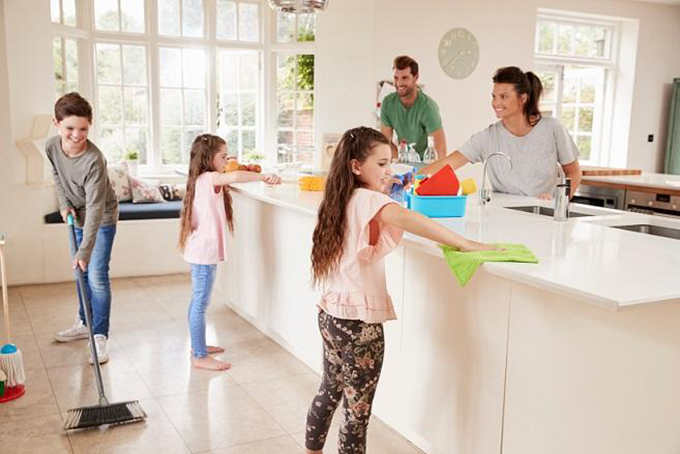
“You should be in bed by now and we haven’t even brushed your teeth yet,” do you despair as your 4 year old son runs down the hallway, knocking over the pile of clean laundry you just put down?
This kind of situation may sound familiar to many parents: around the world, the consequences of the Covid-19 epidemic has left them more time to share with their children but less resources to cope with moments of nervousness. of the youngest.
Luckily, there is a fun, science-based way to get your kids to get involved in what you ask them, with more persistence and gusto: pretend play.
Without a minute’s break to build a good story, I can hardly convince my 3 year old to put away his games. This is how we find ourselves imagining that we are backhoes tasked with throwing all the stones around us into a box. And we usually have to keep a twist in our history to keep the urge to go to the end of the challenge – whether it’s an enemy armed with a wrecking ball or a cat who gets trapped. .
Why does this kind of scenario work? Recent research explains this.
Control your emotions
If a child is behaving badly (in short, doing the opposite of what they should be doing), it may mean that they need a bigger challenge than they are asked to do. According to Lev Vygotsky , a leading Russian expert in psychology, imagination drives children’s development during a time when reality is not enough to arouse their curiosity. This period is between 2 years and 7 years.
Pretending helps children put themselves in other people’s shoes and persevere in their path. Among those aged 7, for example, two in three have already had an imaginary friend. They have an easier time understanding the point of view and emotions of others and are able to tell more complex stories than their peers.
Research shows that the more kindergarten students can pretend, the more they are able to control their emotions . This is important because, in order to persevere in a task, you have to know how to overcome the other emotions and ideas that arise in the meantime. This is what allows you to not lose sight of your main goal , whether it’s putting away your toys, doing homework or brushing your teeth.
This aspect is all the more important since children who are able to control themselves better will later have better health, better relationships, more facilities to save money and less risk of having a criminal record as a teenager and later .
Experiments have shown that when 6-year-olds are asked to put themselves in the shoes of Bob the Builder or Dora the Explorer, they are more perseverant in the tasks that may seem boring to them, and do them better .

Pretending helps children stay on their way. Shutterstock
Other experiments show that exercising 5-year-olds to pretend and work their imaginations 15 minutes a day for five weeks resulted in better memory and better ability to concentrate – with better results than those obtained with classic games, not based on the imagination, such as ball games. Children will be less reluctant to clean up the breakfast they have just spilled if they have learned to overcome boredom and see the world from a different perspective.
And no, sitting in front of the TV to watch Ben 10 won’t bring the same benefits – it takes your child to make the effort to play a role.
Change point of view
We recently reproduced these experiments where children are asked to pretend, but varying the type of characters offered. We found that children who were randomly assigned to play positive roles (Batman, for example), exhibited more restraint than those who were assigned “bad” roles, but wizards and witches were the most posed of all. . One had the impression that the children endorsed the qualities of their imaginary characters.
So by playing at being a patient guard, your child may be more inclined to wait until you finish brushing their teeth, while by identifying with the conscientious Builder Bob, they will be more willing to help you. clean the bathroom after its visit.
Reference to characters can also help a child calm down or understand what is wrong with their behavior. Imaginary models would work because they help take a different perspective. Instead of asking your child directly about what just happened, instead discuss what a particular character would do. And if the situation is too complex for the child, you can also use toys to stage the problematic behavior.
Challenging your child by teasing their imagination can also encourage them to do homework. Researchers are now turning to game-based education to improve problem solving , reading , numeracy and attention span . An analysis of 22 studies showed that teaching is most effective with children under 8 when it takes a playful approach .
Author Bio: Lecturer in early childhood at Macquarie University
